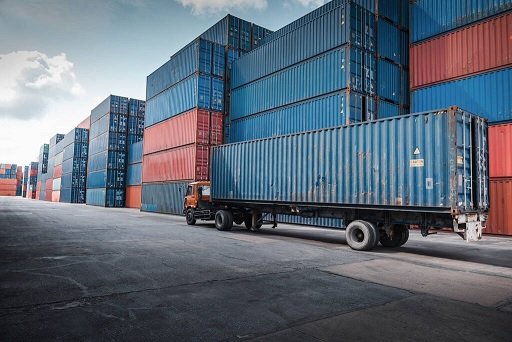In the intricate dance of global commerce, the seamless movement of goods from one point to another is orchestrated by the vital players known as freight logistics services. These services serve as the backbone of supply chains, ensuring that products reach their destinations in a timely, cost-effective, and efficient manner. In this article, we will delve into the significance of freight logistics services, their key components, and the impact they have on the dynamic landscape of modern trade.
1. Definition and Scope of Freight Logistics Services:
Freight logistics services encompass a range of activities involved in the planning, coordination, and execution of the transportation of goods. This intricate process involves multiple stages, from the initial point of origin to the final destination, and includes various modes of transportation, such as road, rail, sea, and air. Freight logistics services play a pivotal role in optimizing supply chain operations, streamlining processes, and ensuring that goods move smoothly across local, regional, and international borders.
2. Strategic Planning and Route Optimization:
One of the primary functions of freight logistics services is strategic planning to determine the most efficient routes for transporting goods. This involves considering factors such as distance, transportation modes, customs regulations, and potential disruptions. Advanced technologies, including Geographic Information System (GIS) mapping and route optimization software, enable logistics providers to identify the most cost-effective and time-efficient paths for cargo, minimizing transit times and reducing overall transportation costs.
3. Multi-Modal Transportation Management:
Freight logistics services often involve managing multi-modal transportation, where goods may transition between different modes, such as trucks, ships, trains, and planes, during their journey. Coordinating the seamless transfer of cargo between these modes requires intricate planning and logistics expertise. By leveraging a combination of transportation modes, logistics providers can offer flexible solutions that balance cost-effectiveness and speed, adapting to the specific needs of their clients.
4. Warehouse and Inventory Management:
Effective freight logistics services extend beyond transportation and include comprehensive warehouse and inventory management. Warehousing plays a crucial role in the supply chain by providing storage, order fulfillment, and inventory control. Logistics providers employ advanced warehouse management systems (WMS) to optimize inventory levels, reduce holding costs, and ensure timely order fulfillment. This integrated approach enhances overall supply chain efficiency and customer satisfaction.
5. Customs Clearance and Compliance:
Navigating the complexities of customs clearance and compliance is a critical aspect of freight logistics services, especially in international trade. Logistics providers must stay abreast of ever-evolving customs regulations, tariffs, and documentation requirements to ensure the smooth passage of goods across borders. Expertise in customs clearance and compliance minimizes delays, reduces the risk of fines or penalties, and facilitates the efficient movement of goods in a global marketplace.
6. Real-Time Tracking and Visibility:
In an era where real-time information is paramount, freight logistics services leverage technology to provide clients with enhanced visibility into the movement of their goods. Advanced tracking systems, including GPS and RFID technology, enable shippers to monitor the location and status of their cargo throughout the entire transportation process. Real-time tracking enhances transparency, improves decision-making, and allows for proactive responses to potential disruptions.
7. Risk Management and Contingency Planning:
Freight logistics services include robust risk management strategies and contingency planning to address unforeseen challenges such as weather-related disruptions, transportation strikes, or geopolitical issues. By anticipating potential risks and developing contingency plans, logistics providers can mitigate the impact of disruptions and ensure the continued flow of goods. This proactive approach enhances the resilience of supply chains in the face of unpredictable events.
8. Sustainable and Eco-Friendly Practices:
In response to the growing emphasis on sustainability, freight logistics services are increasingly incorporating eco-friendly practices into their operations. This includes the use of fuel-efficient transportation, optimizing routes to minimize emissions, and adopting green technologies. Sustainability initiatives not only align with corporate responsibility goals but also contribute to cost savings and the reduction of the logistics industry’s environmental footprint.
9. Cost Optimization and Efficiency:
Freight logistics services are instrumental in optimizing costs throughout the supply chain. Through strategic route planning, efficient inventory management, and effective use of transportation modes, logistics providers help minimize overall transportation costs for their clients. The pursuit of cost optimization is a constant endeavor, driven by the goal of delivering goods in a timely and cost-effective manner while maximizing the efficiency of the entire supply chain.
10. Evolving Technologies in Freight Logistics:
The landscape of freight logistics services is evolving rapidly with the integration of cutting-edge technologies. Automation, artificial intelligence (AI), blockchain, and the Internet of Things (IoT) are transforming traditional logistics practices. Automated warehouses, AI-driven predictive analytics, blockchain-enabled supply chain visibility, and IoT sensors on cargo containers are just a few examples of how technology is enhancing the efficiency and effectiveness of freight logistics services.
In conclusion, the role of freight logistics services in the modern global economy cannot be overstated. From strategic planning and multi-modal transportation management to warehouse operations, customs clearance, and real-time tracking, these services are instrumental in ensuring the smooth flow of goods across the supply chain. As technology continues to advance and sustainability becomes a greater priority, the evolution of freight logistics services will play a key role in shaping the future of global trade and commerce.





